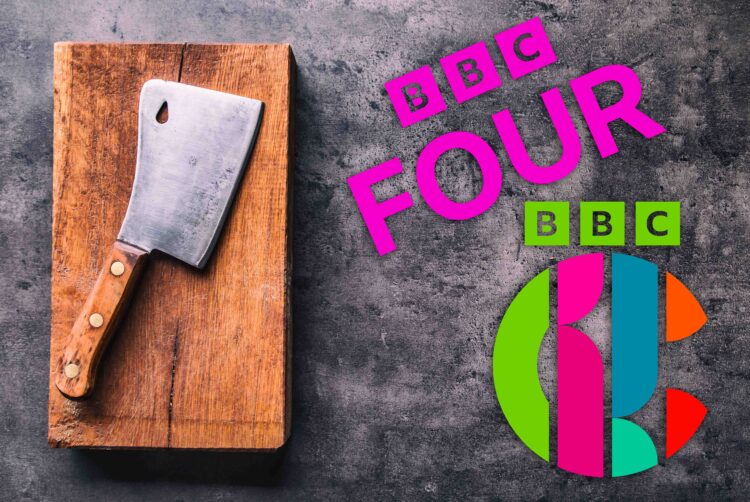BBC4 and CBBC: has Tim Davie axed the wrong channels?

Opinion
We can only hope that BBC2 could now return to its original incarnation as a more challenging channel.
Last week’s news didn’t come as especially surprising, confirming as it does the innate philistinism of Tim Davie’s BBC.
CBBC undoubtedly has its virtues, but as I’m not in the target audience, I will concentrate on the impending defenestration of BBC4.
Admittedly, budget cuts have resulted in the channel becoming a home to archive programming, but even in its neutered state, it will be missed – particularly by older viewers who still struggle with BBC iPlayer.
There is a scintilla of hope that the demise of BBC4 may mean BBC2 could return to its original incarnation as a more challenging channel, rather than a nursery slope for BBC1, which has been its function over the last 15 years or so.
But, as I have said numerous (too many?) times, it depends on how much faith you have in the editorial nous of Davie, whose previous claim to fame was flogging the Number Two brand cola in the UK.
When director of BBC’s Music & Audio, he famously attempted (and failed) to axe 6 Music and the Asian Network, esteemed services that to industry voices exemplified the BBC’s remit and ethos.
The recent largely unwanted resurrection of BBC3 proved Tim’s dogged pursuit of the yoof market, presumably one of his creeds when hustling for PepsiCo.
Davie’s street affectations encompass his accent, which despite his public-school education (Whitgift School, founded in 1596) has drifted towards the faux proletarian, in the manner of Northern Ireland Secretary Brandon Lewis (Forest School, Est 1834), Tony Blair (Fettes College, 1870) and Steve Coogan’s fictional Philip Green avatar Sir Richard ‘Greedy’ McCreadie.
The lamentable performance of BBC3 since its relaunch this February rubs salt in the wound for those who regarded BBC4 as welcome presence on their TV screens.
Fair enough, I suppose, if the reborn BBC3 crushed it in terms of ratings…
I, for one, will miss BBC4, for the odd commissioned gem (Brian Pern, Detectorists, Jerusalem: The Making of a Holy City etc) in its heyday, unearthed classics, the introduction of Nordic Noir and resolute refusal to patronise the audience.
I doubt that Culture Secretary Nadine will shed any tears, as reality game shows, Noddy and Bridgerton appear to be more in her wheelhouse.
In another part of the multi-verse, a continuing, well-funded BBC4 may have even decided to adapt the now retired Culture Secretary’s memoirs à la 4’s Alan Clark Diaries (2004).
Quite how they would translate the child-like crayoned illustrations, Adrian Mole-esque musings, TikTok rapping (not a patch on former Liberal leader David Steel’s 1982 effort btw) and rococo descriptions of an unrecognisably Adonis-like PM Boris Johnson into a coherent TV series could challenge even the likes of Andrew Davies (Fanny Hill, The Chatterley Affair, Bridget Jones: The Edge of Reason).
Or not, on reflection.
One thing though; I can’t disagree with the decision to merge BBC News and BBC World News into one 24-hour channel.
Recent experience of BBC WN on a much-needed break confirmed my previous opinion of the channel as one of the dullest English Language news providers available to travellers, relegating Sue Gray’s Partygate to the fourth headline item, after reports on irrigation projects in Mongolia, Polynesian nose flutists and 3D printing schools in Madagascar.
Even when I was of an age to listen to Radio 1, it was always a bit naff (John Peel aside, which dates me); would anyone – aside from commercial stations – be that bothered if it was sold off?
I’ve never listened to Radio 2, but I understand its value as an audio comfort blanket for an older demographic, and as it has a reach almost twice that of R1 (15m listeners vs 8m), should be retained.
BBC Drama – the runners and riders
Lastly, observations on the favourites to fill the BBC Head of Drama gig vacated by Piers Wenger when he left to join super-hip Euphoria producer A24.
The three contenders are said to be Netflix’s UK chief Anne Mensah, C4’s Caroline Hollick and BBC Acting drama head Ben Irving.
Mensah has support, but her record at Sky was decidedly mixed and few Netflix shows have yet to see the light of day, which makes some of the praise accorded a tad premature – at least until we see the full fruits of her labours, that is.
Chernobyl and Patrick Melrose were great commissions for Mensah at Sky, but You, Me and the Apocalypse, Lucky Man, The Smoke, Temple, Fortitude, Sinbad and (further back) BBC3’s Phoo Action denote issues with quality control.
Hollick’s experience of overseeing BBC1 drama hits such as Happy Valley and Last Tango in Halifax when at RED and kudos for C4 shows Help and It’s a Sin may give her the edge.
No doubt well-regarded Irving’s time will eventually come, but it may be that the BBC currently prefer an industry headline-grabbing hire from outside the Corporation.
But bearing in mind Dorries’ incessant jabbering about Netflix, maybe Mensah could actually be ‘the one’.
 Stephen Arnell began his career at the BBC, moving to ITV where he launched and managed digital channels. He continues to consult for streamers and broadcasters on editorial strategy. He currently writes for The Spectator, The Independent, and The Guardian on film, TV and cultural issues. He is also a writer/producer (including Bob Fosse: It’s Showtime for Sky Arts) and novelist.
Stephen Arnell began his career at the BBC, moving to ITV where he launched and managed digital channels. He continues to consult for streamers and broadcasters on editorial strategy. He currently writes for The Spectator, The Independent, and The Guardian on film, TV and cultural issues. He is also a writer/producer (including Bob Fosse: It’s Showtime for Sky Arts) and novelist.




